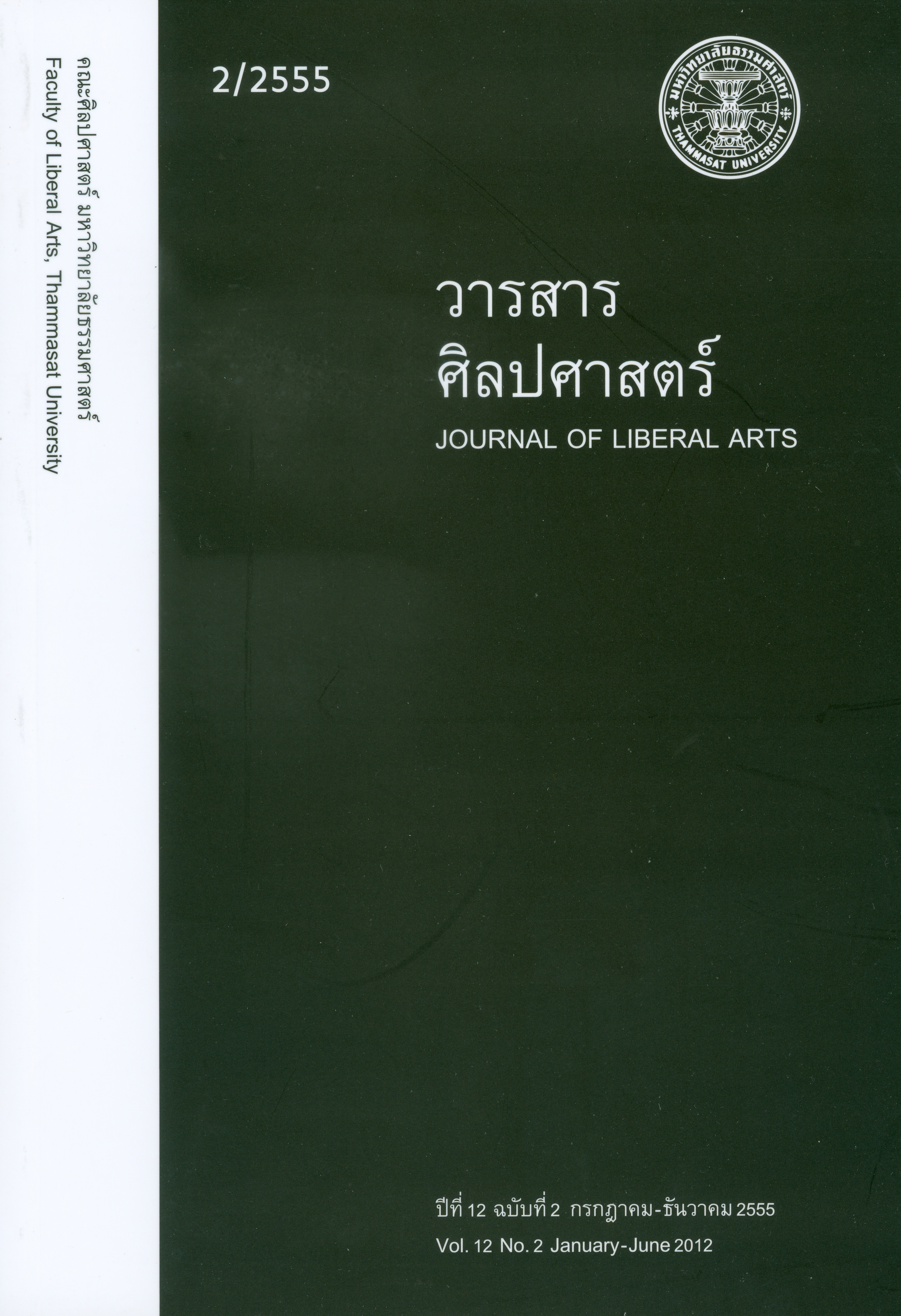การละเมิด: ความสำคัญต่อการเล่าเรื่องในมหาภารตะ
Main Article Content
บทคัดย่อ
การละเมิดในมหาภารตะ มีสี่เรื่องด้วยกันได้แก่ ขโมยวัว ฆ่าพราหมณ์ ละเมิดกฏการอยู่ร่วมกัน และละเมิดกติกาการรบ การละเมิดเรื่องที่สามเน้นย้ำความเป็นพระเอกของอรชุน ในขณะที่การละเมิดเรื่องอื่นๆ นั้นมีโครงสร้างเหมือนกัน คือ เริ่มด้วยการละเมิด จากนั้นก็มีคำสาป มีการละเมิดอีกครั้ง และเรื่องก็คลี่คลายในที่สุด โครงสร้างที่เกิดขึ้นซ้ำๆ กันนี้อาจสะท้อนให้เห็นถึงความสำคัญของแนวคิด Determinism ที่มองว่าเหตุการณ์ที่เกิดขึ้นรวมถึงการกระทำของมนุษย์ได้ถูกกำหนดไว้ล่วงหน้าโดยเหตุปัจจัยภายนอกซึ่งอยู่นอกเหนือจากเจตจำนง นอกจากนี้ เราจะเห็นว่าเงื่อนขไที่ใหญ่กว่าการละเมิดคือ "คำสาป" ซึ่งมีความสำคัญทั้งในแง่ของการสะท้อนแนวคิดชะตาที่เปลี่ยนแปลงไม่ได้ และในเชิงกลวิธีการเล่าเรื่อง คือ มีลักษณะคล้ายการเกริ่นการณ์ซึ่งเป็นการกำหนดเนื้อหาที่จะเกิดขึ้นต่อไป
There are four transgressions in Mahabharata. These are stealing the cow, killing the Brahmin, breaking the rule of living together, and waging war. The third transgression highlights Arjuna's heroism whereas the others have the same scheme, which starts with transgression and then results in curses. There is another transgression agian along with unfolding the situation in the end. The repeated schemes probably reflect the importance of Determinism. Furthermore. it is clear that conditions that are more powerful than transgressions are curses, which are important as reflections both of determinist philosophy and of narrative strategies.


